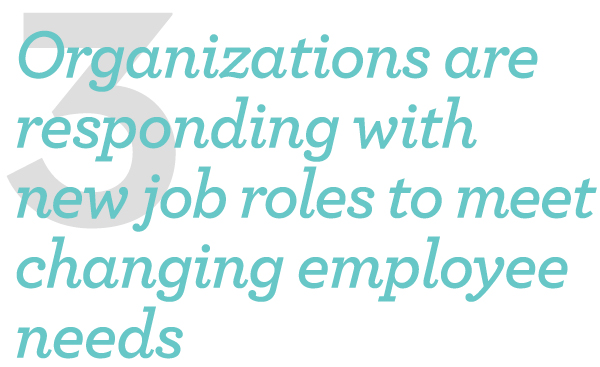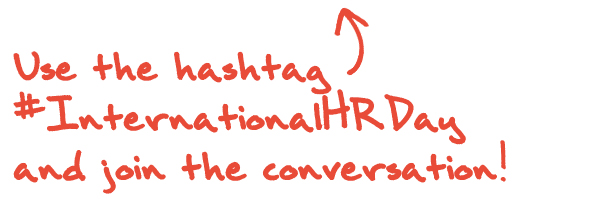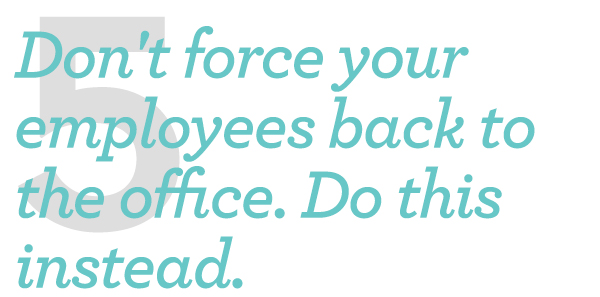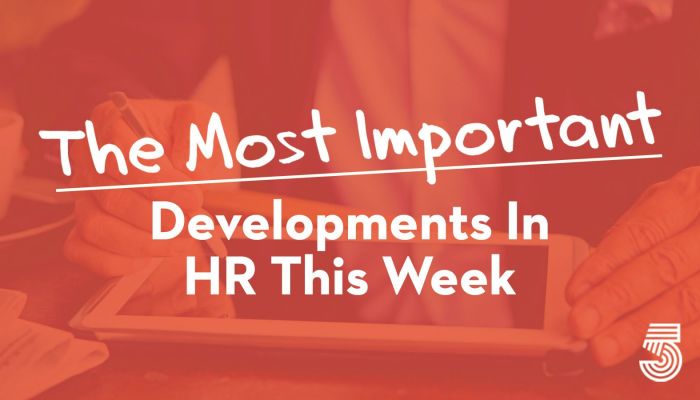The M.I.D., as we call it, is curated by our editorial team from more than 50 news sources. Like a lot of good ideas, this started as something I wanted for myself. If I can’t read everything, I at least want to stay abreast of the most important developments.
Happy International HR Day! This week in HR, we learned Covid’s not over, antisemitism is on the rise, HR Happy Hour has a quick alternative for busy podcast listeners, and employee engagement = connections.


With the Omicron BA.2 strain and its descendants becoming dominant and immunity from infections and vaccinations waning, the pandemic is not over and companies must be prepared for whatever the pandemic throws at them next. This article outlines four actions leaders can take now to increase the safety of their employees and decrease business disruption in the event of future community outbreaks. After more than two years of Covid-19 and its variants, most of us have been beset by pandemic fatigue. This includes business executives who want and need to focus their skills and activities on business-critical areas and spend less thought, time, and energy on the pandemic. But the answer isn’t to ignore the pandemic; it is to have a system in place to handle it. It should include these components. Reduce restrictions as the situation allows. Plan for another surge or outbreak now. Embrace remote and hybrid work. Effectively communicate pandemic plans. HBR


Marissa, a 27-year-old Web developer, joined a group of co-workers for lunch in their company’s breakroom in Winter Park, Florida, in February 2020. The young tech professional, who is Jewish, noticed a male colleague staring and smirking at her from across the table. Annoyed, Marissa jokingly asked him if there was food on her face. “He responded with a comment about my physical appearance and the way Jewish people in general look,” she recalls. Racism and discrimination are rife in U.S. workplaces. The advent of the Black Lives Matter movement, the increase in anti-Asian-American violence and other recent racial atrocities have inspired companies to speak out against bigotry and strengthen their diversity, equity and inclusion programs. But bias aimed at Jewish employees often goes unnoticed, despite a recent rise in antisemitism. Anti-Defamation League data shows that business establishments were the fourth most common site of antisemitic incidents in 2020, with the incidents ranging from verbal abuse to physical intimidation. SHRM


Welcome to the Workplace Minute powered by H3 HR Advisors. A short, quick version of the popular HR Happy Hour Podcast, where Steve Boese, co-founder of H3 HR Advisors and program chair of the HR Technology Conference, and Trish McFarlane, CEO and principal analyst H3 HR Advisors, take on topics on Human Resources, HR technology, work, and the workplace. And more. In this episode Steve shares how some organizations are creating new leadership roles to support wellbeing, culture, and flexible working. HR Happy Hour


International HR Day is your opportunity to join your profession in an international recognition of all the hardworking HR and people professionals around the world. On May 20 we will recognize the profession, the work that we do, and our positive contribution for individuals and organizations, on a national and international scale.#InternationalHRDay provides an opportunity to: Recognize HR and people practices at an individual, company, national, and international level. Publicize the significant contribution the HR and people profession is making right now. Showcase how we work across boundaries though EAPM to develop thinking and practice! EAPM


Readers are still trying to crack the code for keeping employees engaged. A new study from Gartner offers some answers. The research firm surveyed over 3,500 knowledge workers whose jobs could mostly be done remotely. Over 75% said that culture is very or extremely important to being effective at their jobs, but only 25% felt connected to their organization’s culture. However, while yanking everyone back to the office may seem like the solution, the study also found that employees with more flexibility were more connected to their organization’s culture: 53% of employees who had flexibility of location, schedule, and work in terms of what they did and who they worked with felt connected to their organization’s culture. Over half of employees said they do their best work at home, and alone. The report offers three solutions. First, ensure the work itself is meaningful. Second, deliberately create emotional connections rather than relying on watercooler chat to create a social connection. Third, make sure personal interactions count, whether they are in person or via Zoom. Fast Company










